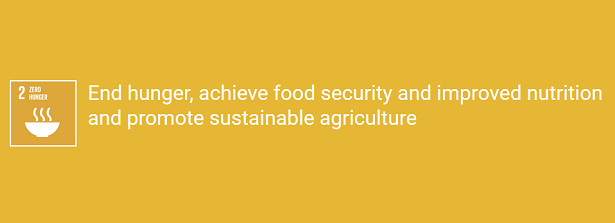
The Dutch Ministry of Economic Affairs and Wageningen University & Research (WUR) organize a lunch seminar “Indicators and trade-offs of the SDG-2” as a follow-up of a first joint seminar realized in April. Participants will discuss how the Netherlands currently performs relative to other countries with regards to proposed SDG-2 and related indicators, what threshold values should be adopted, and what trade-offs are entailed by different development pathways related to food production and consumption at the local and regional levels.
Context
In 2015, 194 countries signed the United Nations Global Goals on Sustainable Development (SDGs), including the Netherlands. SDG-2 aims to “End hunger, achieve food security and improved nutrition and promote sustainable agriculture”. Some of the targets and indicators are still not concretely defined, which may pose a challenge to their practical implementation. Therefore, WUR researchers involved in the TSARA1 research project, together with Rothamsted Research (UK) and the Institute for Sustainable Development and International Relations (France), are reviewing the UN-proposed SDG-2 indicators and suggesting improvements wherever possible. In a pilot study, a set of revised indicators has also been applied to three contrasting countries – the Netherlands, Brazil and Nigeria – to explore the various challenges faced and to illustrate the need for relative, adaptable indicators.
During the review process, some weaknesses have been revealed in the original indicators. Although every indicator was deemed quantifiable, unclear definitions pose obstacles to their quantification. For instance, indicator 2.4.1 refers to the percentage of agricultural area under sustainable practices; while percentage is a directly quantifiable metric, agreeing on what sustainability is, when it is achieved and what it translates into at different scales can be more complicated. Another weakness concerns a clear divide in the list of indicators. Targets 2.1 (hunger) and 2.2 (malnutrition) are relatively well defined. In contrast, targets 2.3 (agricultural productivity), 2.4 (sustainability of food production systems) and 2.5 (genetic diversity and fair benefit-sharing) are less clearly defined and not always universally relevant. In these cases, prior to answering how to operationalize their indicators, it is important to understand what exactly each of them consists of.
Lunch meeting
The further development and analysis of these indicators are highly relevant for policy makers. Also the synergies and trade-offs with other SDGs are important (e.g. with SDG-13 Climate action and SDG-15 Life on land). Therefore, the Dutch Ministry of Economic Affairs and WUR organize this lunch seminar “Indicators and trade-offs of the SDG-2”. The meeting is a follow-up of a first joint seminar realized in April and the aim is to achieve a broad audience, including representatives from the government, business, academia, civil society and farmer associations. Participants will discuss how the Netherlands currently performs relative to other countries with regards to proposed SDG-2 and related indicators, what threshold values should be adopted, and what trade-offs are entailed by different development pathways related to food production and consumption at the local and regional levels. Presentations will be followed by interactive group dynamics on targets and thresholds.
Registration
Please register by sending an email to Marja Krijgsman, , before October 15. Additional information will be circulated prior to the meeting to those who have registered.
Please note that the presentations will be in English and that personal identification is required when visiting the Ministry. Lunch will be provided.
Footnotes
- 1. The TSARA project (Targets for Sustainable and Resilient Agriculture) is linked to JPI-FACCE (European research cooperation for agriculture, food security and climate change). For further information: http://faccesurplus.org/research-projects/tsara/.
- This event has passed.

